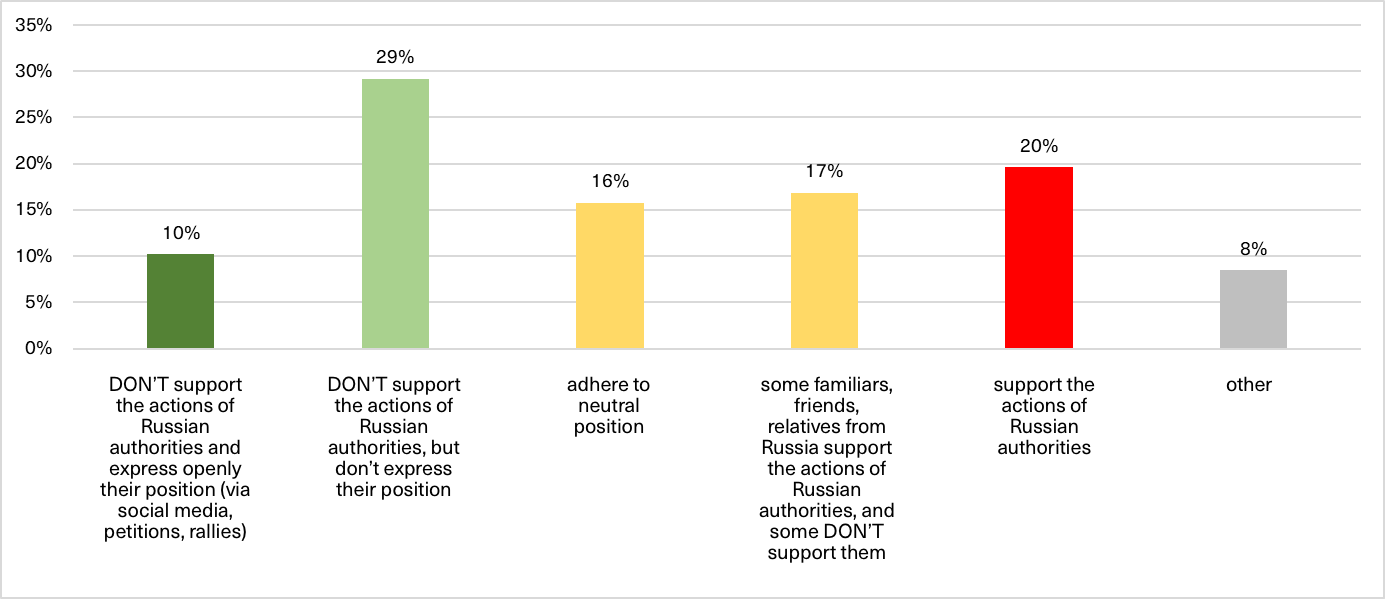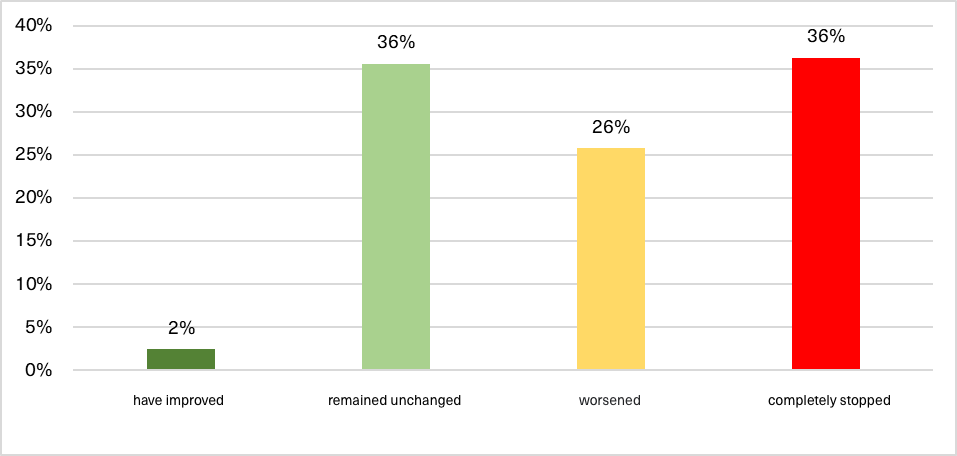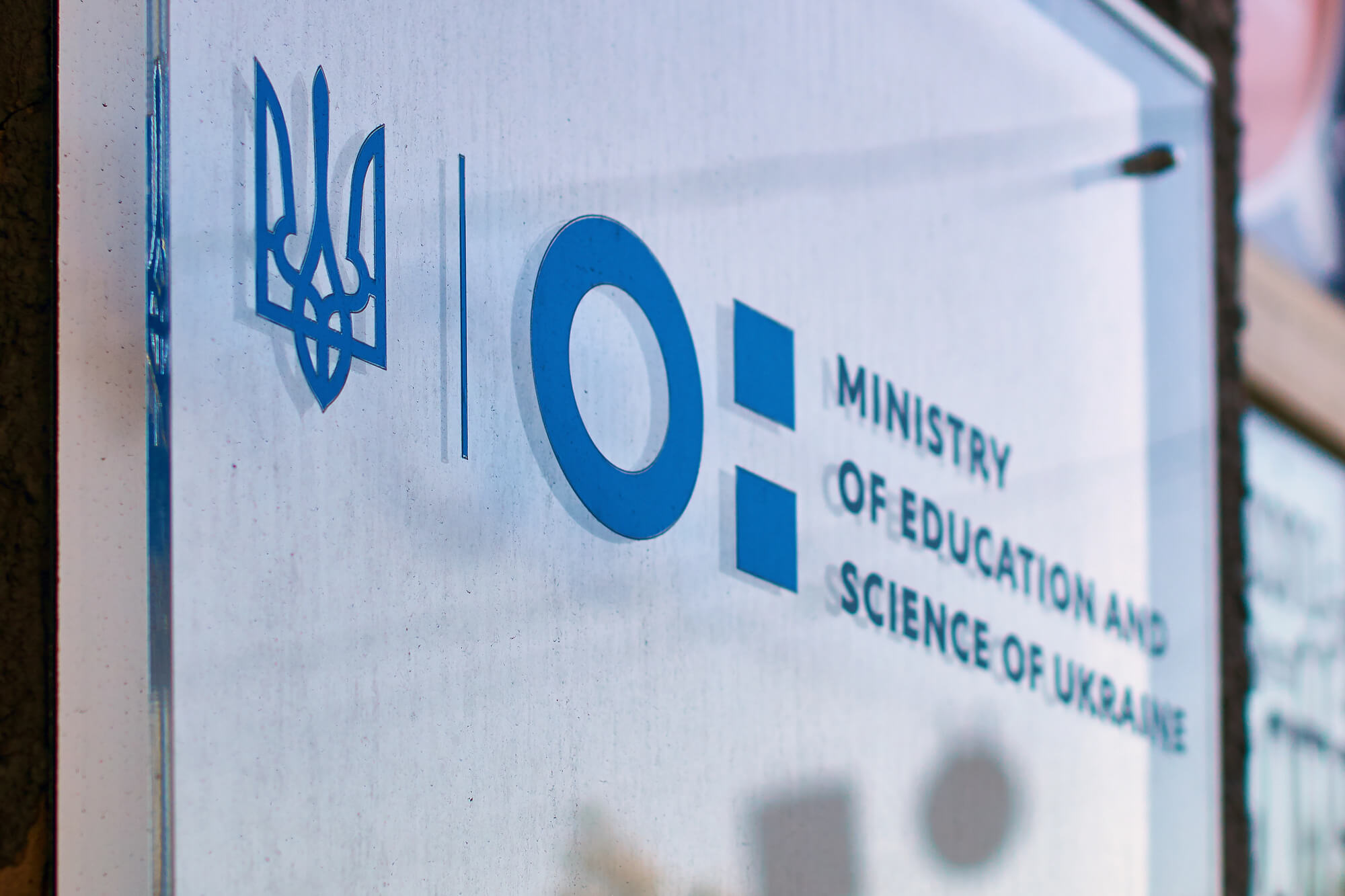In March 2022, sociological company Factum Group conducted a survey among Ukrainians about their well-being during the war. There were some questions about whether respondents have familiars in Russia and do these familiars support Russia’s politics. We decided to analyze these answers and see if they differ from information concerning the support of Putin, which is being spread Russian sociologists.
The material is written on the basis of the poll YOUkrayina, which was held by the sociological company Factum Group on March 15 – 22, 2022. Target audience of the poll: the population of Ukraine aged 18 – 55 years old, Internet users in cities with a population of 50 thousand + (excluding Crimea and ORDLO – The temporarily occupied territories of Ukraine). 600 respondents took part in the survey.
54% of respondents noted that they have relatives, friends or colleagues in Russia. In order to understand approximately the level of connections between Ukrainians and Russians 2011 poll can be taken into account. Then 49% of respondents noted that they have relatives in Russia, 30% – have friends or acquaintances, 2% – colleagues (it was possible to choose several options at the same time).
69% of Ukrainians, who took part in the survey, among those who has familiars in Russia, discussed with them the war in Ukraine.
Almost 40% of Ukrainians who have familiars in Russia, reported that these familiars do not support actions of Russian authorities, 20% said they support Putin’s actions, 17% have relatives and friends with different views on the current situation, and 16% – familiars adhere to neutrality (whatever that means).
It is important to remember that we are not analyzing the answers of Russians, but the answers of Ukrainians who interpret independently the attitude of their Russian familiars towards the war.
Figure 1. According to respondents, their familiars from Russia think about the actions of its authorities this way
Data: Factum Group
It does not resemble the data that are spread by Russian sociological agencies. As of early March, the Russian Public Opinion Research Center (VTsIOM) reported that 71% of Russians support the decision on the military special operation (in fact the invasion of Ukraine), 21% do NOT support, another 8% failed to answer the questions. Similar information was published by Levada Center. At the end of March, 81% of Russians supported or rather supported actions carried out by the Russian army in Ukraine, 16% – did NOT support.
Interesting data on support of the actions of Russian authorities, based on the detailed data provided by the same VTsIOM, is given by Medusa: among young people aged 20 years over 50% of respondents do NOT support the special operation. But the older is person, the bigger is the probability that he/she supports actions, taken by the authorities: more than 30% of Russians aged 35 years old do NOT support the special operation, only 10% of Russians aged 70 years old do not agree with the decision of the authorities.
The difference in data provided by the poll held among Ukrainians, which was conducted by the Factum Group, and Russians may have several reasons, in particular:
- different samples, because we do not know whether the familiars of Ukrainian respondents represent the whole population of the Russian Federation;
- the misinterpretation by Ukrainians concerning the attitude of Russians towards the actions taken by authorities;
- the higher loyalty to Ukraine among those Russians who have relatives and friends in Ukraine;
- the insecurity of Russian surveys (due to the fear of respondents to answer truthfully or through “drawing” the required numbers).
It needs another analysis.
The Russia ‘s invasion of Ukraine undoubtedly affected the relations between citizens of the countries. More than 35% of Ukrainians who have familiars in Russia, completely stopped the communication with them, and only 2% said that their relations with the Russians have improved.
Figure 2. Whether the relations of Ukrainians with their relatives, friends, colleagues from Russia have changed after the Russian invasion of Ukraine in 2022
Data: Factum Group
The answers to this question are aligned to a great extent with the answers in Figure 1. About 40% of Ukrainians noted that their familiars do NOT support actions taken by the Russian authorities – and a similar part of respondents (38%) said that the relations with their Russian familiars remained unchanged or have improved. Also 35% of those who ceased the communication with their familiars in the Russian Federation, approximately corresponds to the part of those, whose familiars support Putin or “adhere to neutrality”- a total number of 36%.
Conclusion
Although the Russian “group of support” in the world is trying to promote the idea that the war was not started by the Russian people, but by Putin, the future of relations between Ukraine and Russia at the global, family or friendly levels depends precisely on the actions of “ordinary” Russians.
Attention
Автори не є співробітниками, не консультують, не володіють акціями та не отримують фінансування від жодної компанії чи організації, яка б мала користь від цієї статті, а також жодним чином з ними не пов’язаний




